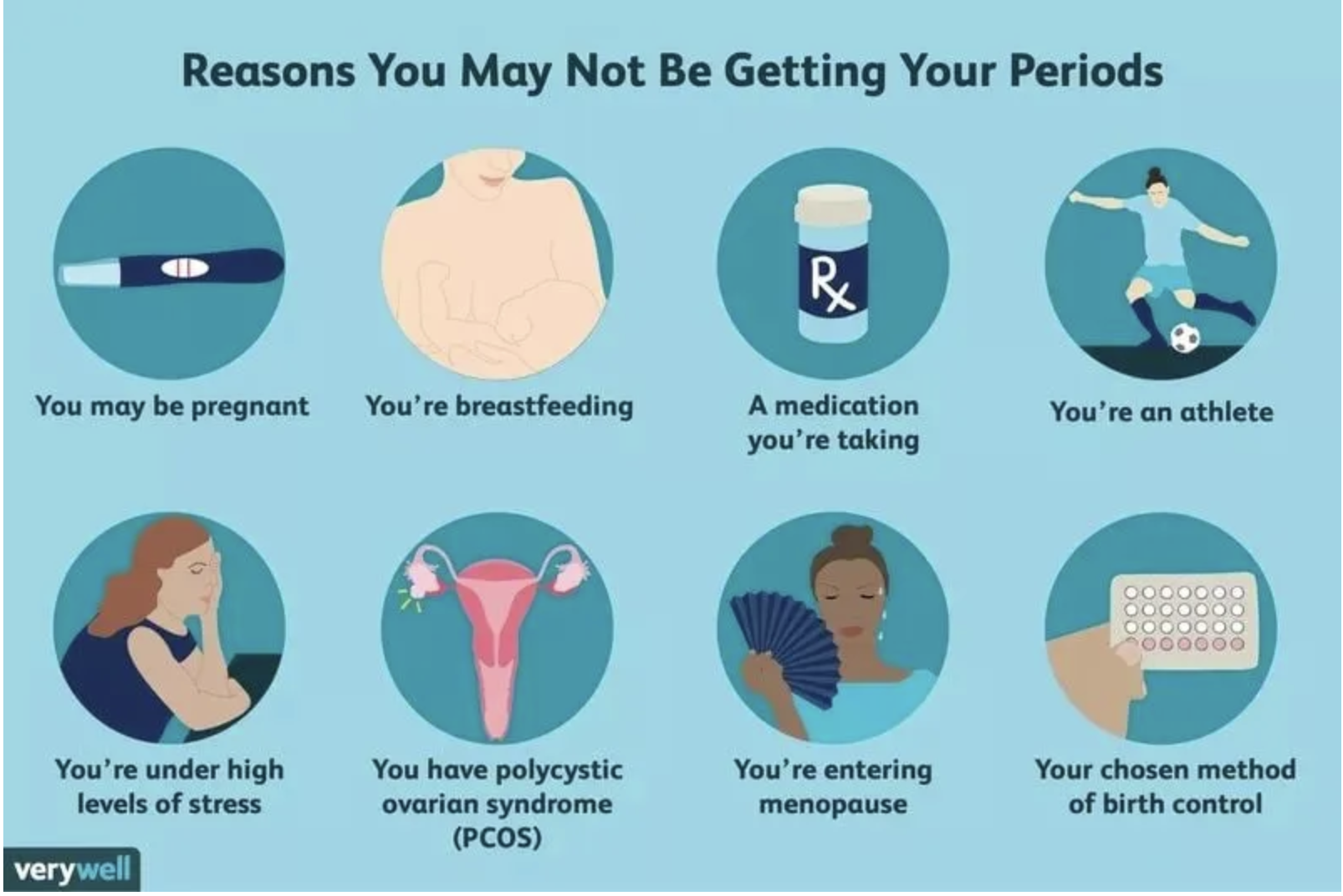Amenorrhea: Getting Pregnant Without a Period?
Posted on Jul 13th 2025 | By: Chiral Balance
You may not know what caused your periods to stop.

Amenorrhea & Fertility: Can You Get Pregnant Without a Period?
For many women, a regular menstrual cycle is a sign of reproductive health—but what happens when your period is absent? The medical term for the absence of menstruation is amenorrhea, and it can be confusing and emotionally stressful, especially if you're trying to conceive.
But here’s the good news: it is possible to get pregnant even if you’re not having periods. Understanding the root cause of amenorrhea and exploring treatment options can bring you closer to your fertility goals.
What Is Amenorrhea?
Amenorrhea is defined as the absence of menstrual periods:
-
Primary amenorrhea: When a young woman hasn’t had her first period by age 15.
-
Secondary amenorrhea: When a woman who previously had regular cycles stops menstruating for three or more months.
This condition is a symptom, not a disease, and can have a variety of underlying causes—some temporary, others requiring medical support.
Can You Get Pregnant Without Having a Period?
Yes, but with a caveat. In order to conceive, you must ovulate—release an egg from your ovary. While most ovulation leads to a period if pregnancy doesn't occur, some women may ovulate sporadically or without obvious signs. If you ovulate, even irregularly, pregnancy is still possible, though it may be harder to track your fertile window.
Common Causes of Amenorrhea
Understanding the cause of amenorrhea is key to determining the best fertility treatment. Some common reasons include:
-
Polycystic Ovary Syndrome (PCOS)
A hormonal disorder that affects ovulation. PCOS is a leading cause of amenorrhea and infertility. -
Hypothalamic Amenorrhea
Caused by stress, extreme weight loss, excessive exercise, or disordered eating. The brain suppresses the reproductive hormones needed to trigger ovulation. -
Thyroid Imbalances
Both hypothyroidism and hyperthyroidism can disrupt menstrual cycles. -
Premature Ovarian Insufficiency (POI)
Also called early menopause, this occurs when the ovaries stop functioning before age 40. -
Elevated Prolactin Levels (Hyperprolactinemia)
Often caused by a benign pituitary tumor, high prolactin can inhibit ovulation and menstruation. -
Certain Medications
Hormonal birth control, antidepressants, antipsychotics, and chemotherapy can sometimes cause amenorrhea.
Treatment Options: Restoring Ovulation & Fertility
Your treatment plan will depend on the underlying cause of amenorrhea, your age, and how long you've been trying to conceive. Here are some of the most effective approaches:
1. Lifestyle Modifications
If amenorrhea is related to low body weight, stress, or excessive exercise:
-
Gradually increase body fat through healthy nutrition.
-
Reduce intense workouts.
-
Consider stress-reducing practices like yoga, meditation, or therapy.
These changes can naturally restore hormonal balance and promote ovulation.
2. Hormonal Therapy
-
Clomiphene citrate (Clomid) or letrozole can stimulate ovulation.
-
Gonadotropins (injectable fertility medications) may be used in more resistant cases.
-
If thyroid or prolactin levels are abnormal, targeted medications can correct the imbalance and restore cycles.
3. Insulin-Sensitizing Agents
For women with PCOS, medications like metformin may improve insulin sensitivity, lower testosterone, and help restart ovulation. However, MANY people have a bad reaction to metformin and suffer side effects like diarrhea. It's not widely known that there are NATURAL OPTIONS.
4. Supplements & Herbal Support
Always consult with your doctor before adding supplements, but some women with irregular cycles have found support in:
-
Myo-inositol and D-chiro-inositol (40:1) or D-chiro-inositol 600-1200mg for PCOS
-
Vitex (chasteberry) for hormonal balance
-
Vitamin D, magnesium, and omega-3s for reproductive health
5. Assisted Reproductive Technology (ART)
If ovulation cannot be restored with medication, options like IUI (intrauterine insemination) or IVF (in vitro fertilization) using donor eggs or embryos may be considered.
What If You’re Not Ovulating At All?
If there is no ovulation due to ovarian failure or other unresponsive conditions, pregnancy may still be possible using donor eggs or embryo adoption, depending on your overall health and reproductive anatomy.
When to See a Fertility Specialist
If you've been trying to conceive for over a year (or six months if you're over 35) without success—or if you’ve stopped having periods altogether—it’s time to see a fertility specialist. Early evaluation can save time and give you a clear roadmap toward conception.
❤️ Final Thoughts
Not having a period doesn’t automatically mean you can’t get pregnant—it just means you need a deeper look into what’s going on with your body. With the right diagnosis, support, and treatment, many women with amenorrhea are able to successfully conceive.
If you’re dealing with irregular or missing periods and want to grow your family, don’t give up hope. Knowledge is power—and there are many paths to parenthood.

